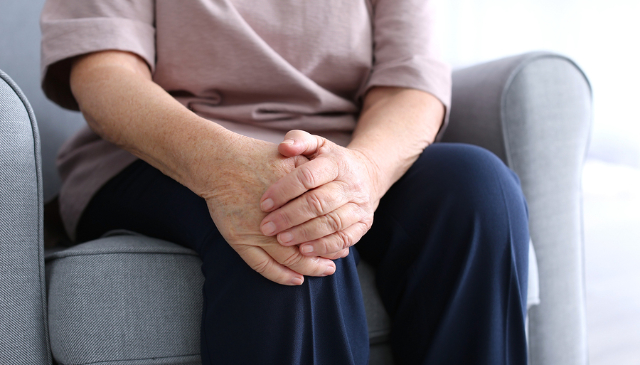News
Why Physical Therapy is Cost-Effective for Knee Osteoarthritis

Knee osteoarthritis is an extremely common disorder that involves the cartilage in a knee joint. In a normal knee, the ends of each bone are covered by cartilage, a smooth substance that protects the bones from one another and absorbs shock during impact. In knee osteoarthritis, this cartilage becomes stiff and loses its elasticity, which makes it more vulnerable to damage. As cartilage wears away over time, it loses the ability to absorb shock, thereby reducing the amount of space between bones and increasing the chances that the two bones will come into contact.
The most common symptom of knee osteoarthritis is pain that gets worse with activity, while swelling, tenderness, and stiffness may also occur in some patients. Patients with knee osteoarthritis often struggle with daily tasks, such as walking, climbing stairs, or even standing for extended periods. And without treatment, this pain can get worse, which makes it difficult to stay active and function normally.
Physical Therapy vs. Injections for Knee Osteoarthritis
Traditional treatment options for knee osteoarthritis include medications, injections, and in severe cases, surgery. Steroid injections are commonly used to relieve inflammation and pain in the knee, but the relief is often short-lived, and long–term use of injections is not generally recommended. Physical therapy, on the other hand, offers a non–invasive and long-term approach to managing knee osteoarthritis symptoms by improving strength, flexibility, and mobility.
A study published in 2022 compared the cost–effectiveness of physical therapy to steroid injections for patients with knee osteoarthritis. It included 156 patients and measured outcomes based on improvements in mobility, pain reduction, and quality of life. The results were as follows:
- Improvement in Quality of Life: Patients who underwent physical therapy experienced greater improvements in their quality of life compared to those who received injections. Physical therapy led to a gain of 0.07 quality–adjusted life years (QALYs), a measure that evaluates the effectiveness of treatment on lifespan and health quality. This suggests that patients in the physical therapy group were more likely to lead longer lives with better quality of life than those in the injection group.
- Cost of Treatment: The total cost of care for patients who received physical therapy was higher than those who received steroid injections, but the long–term benefits of physical therapy outweighed this cost difference, as it provided more sustainable relief without the need for continuous injections.
- Net Benefit: When factoring in both the cost and the improvements in quality of life, physical therapy provided a net benefit of $13,981 per episode of care versus injections. This demonstrates that physical therapy is a cost–effective solution for managing knee osteoarthritis, especially over the long term.
- Patient Opportunity Costs: Physical therapy involved more patient time due to multiple sessions, but the benefits of improved mobility and reduced pain made it a worthwhile investment. In contrast, injections offered a quicker immediate relief, but did not address the root causes of knee osteoarthritis, and ongoing injections were therefore necessary.
Why Physical Therapy is a Better Long–Term Solution
Physical therapy addresses the underlying issues associated with knee osteoarthritis by focusing on strength, mobility, and joint health. Through a combination of aerobic, stretching, and strengthening exercises, patients can experience better muscle support around the knee joint, which in turn reduces pressure and pain. Physical therapy also includes patient education, which helps individuals better understand how to manage their condition and prevent further complications.
While injections may offer temporary relief, they do not provide the same long–term benefits as physical therapy. By committing to a physical therapy regimen, patients can avoid the risks associated with repeated injections and possibly surgery.
Call Us Now for Any Knee–Related Pain
If you or someone you know is struggling with knee pain of any sort, physical therapy may be the best option to improve your quality of life and manage your pain. Our team of expert physical therapists is here to help you regain mobility and live pain–free. Contact us today to learn about how physical therapy can help you take control of your knee health or to schedule an appointment.
For more detailed information on this study, you can read the full article here.
